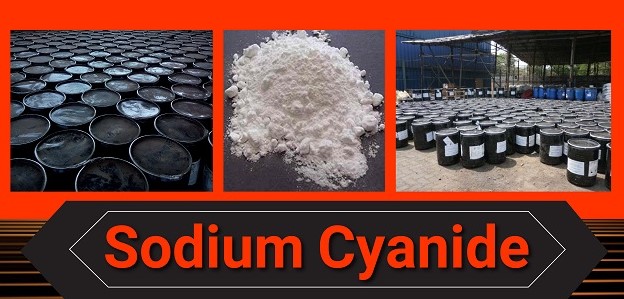
Sodium cyanide toxicity
Sodium cyanide is a highly toxic chemical compound that has significant industrial uses, particularly in mining. However, its toxicity and the dangers associated with its handling require stringent safety measures.
In Kenya, the use and trade of sodium cyanide have become topics of increasing interest, especially in light of environmental and safety concerns. This article delves into the toxicity of sodium cyanide, its various uses, and its market dynamics in Kenya.
Sodium Cyanide Toxicity
Sodium cyanide (NaCN) is a potent inhibitor of cellular respiration, and exposure can be fatal. When ingested, inhaled, or absorbed through the skin, sodium cyanide releases cyanide ions, which bind to cytochrome c oxidase in the mitochondrial electron transport chain, effectively halting cellular respiration.
This leads to a rapid decrease in ATP production, causing cell death and, if exposure is significant, death of the organism.
Symptoms of Sodium Cyanide Poisoning
The symptoms of sodium cyanide poisoning include:
1. Headache
2. Dizziness
4. Shortness of breath
5. Nausea
6. Vomiting
7. Seizures
8. Loss of consciousness
8. Cardiac arrest
Immediate medical intervention is crucial for individuals exposed to sodium cyanide, as death can occur within minutes to hours, depending on the dose and route of exposure.
Sodium Cyanide Uses
Sodium cyanide is primarily used in the mining industry for gold extraction. This process, known as cyanidation or the cyanide process, involves dissolving gold from its ores using a cyanide solution. The resultant gold-cyanide complex is then recovered through various methods, making this process highly efficient and widely adopted.
Industrial Uses of Sodium Cyanide
Beyond gold mining, sodium cyanide has several other industrial applications:
- Electroplating: Sodium cyanide is used in electroplating to deposit metals such as gold, silver, and copper onto surfaces.
- Chemical Manufacturing: It serves as a precursor for various chemicals, including cyanuric chloride, which is used in the production of herbicides and pesticides.
- Pharmaceuticals: Some pharmaceutical manufacturing processes use sodium cyanide for synthesizing organic nitriles and other compounds.
- Dyes and Pigments: Sodium cyanide is involved in the production of certain dyes and pigments, contributing to the textile and printing industries.
Sodium Cyanide Powder Uses
Sodium cyanide is also available in powder form, which is used for similar industrial purposes. The powdered form is often preferred for certain applications due to its ease of handling and faster dissolution rates.
Sodium Cyanide in Kenya
In Kenya, the use of sodium cyanide is predominantly tied to the mining sector. The country’s gold mining operations rely heavily on sodium cyanide for efficient gold extraction. However, the handling and use of this chemical are subject to strict regulatory oversight due to its toxic nature.
Regulatory Framework and Safety
The Kenyan government has implemented regulations to control the importation, handling, and disposal of sodium cyanide. Notably, Companies using sodium cyanide must adhere to safety protocols to prevent accidental poisoning and environmental contamination. This includes proper storage, usage of personal protective equipment (PPE), and emergency response plans.
Sodium Cyanide Price in Kenya
The price of sodium cyanide in Kenya fluctuates based on global market trends, demand in the mining sector, and regulatory changes. As of recent reports, the price has seen an upward trend due to increased demand and stringent import regulations. Hence, This makes the cost management of sodium cyanide a critical aspect for mining companies operating in Kenya.
Environmental and Public Health Concerns
There have been incidents in Kenya where improper handling of sodium cyanide has led to environmental contamination and public health scares. For instance, in the case of Tob Cohen, a prominent businessman, concerns were raised about the possible misuse of industrial chemicals, including sodium cyanide, although direct links were not established. Additionally, Such incidents highlight the importance of stringent oversight and responsible use of hazardous chemicals.
Conclusion
Sodium cyanide plays a crucial role in industrial processes, especially in gold mining. However, its high toxicity necessitates strict regulatory measures and careful handling to ensure public and environmental safety.
In Kenya, while sodium cyanide is vital for the mining industry, regulatory frameworks are essential to mitigate the risks associated with its use. Thus, Understanding the uses, handling requirements, and market dynamics of sodium cyanide can help industries optimize its benefits while minimizing its dangers.





